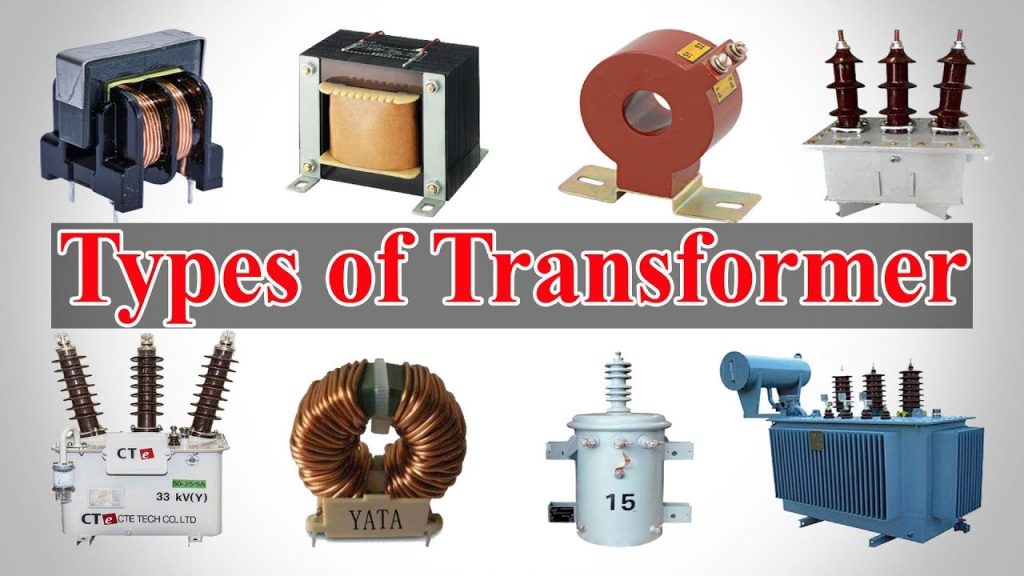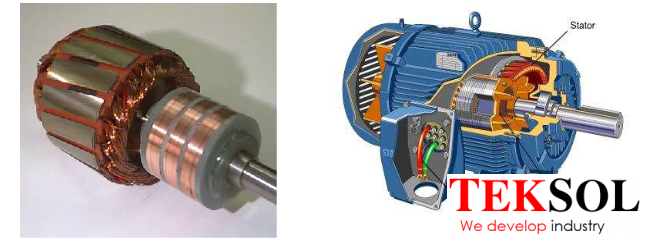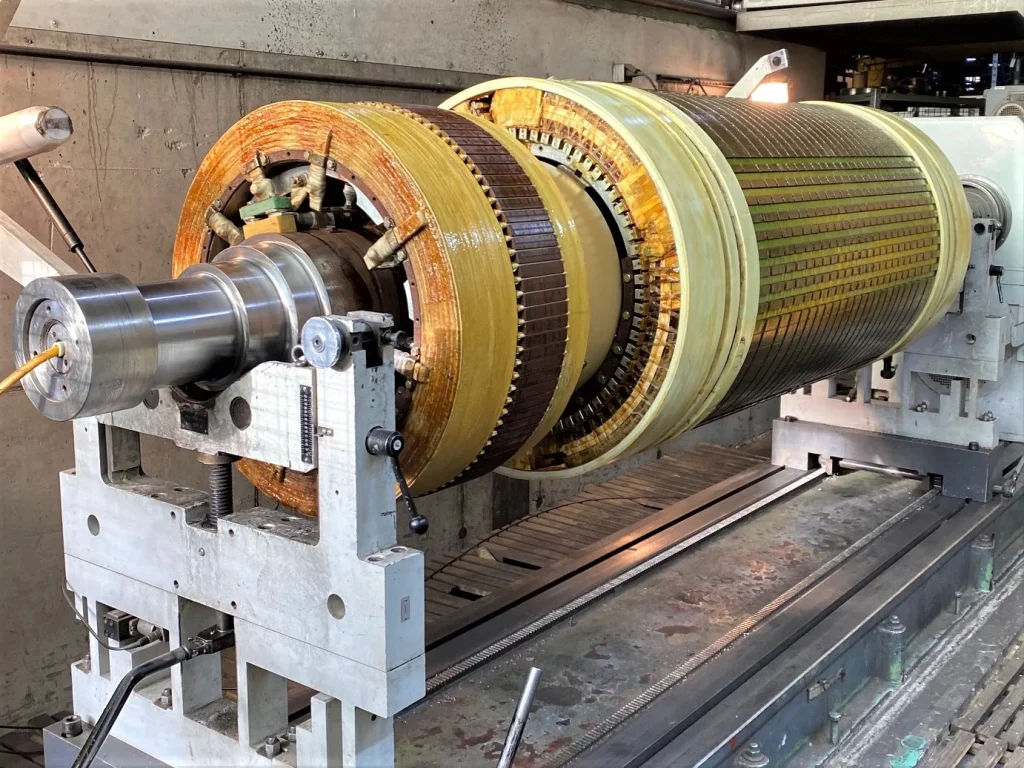1. Definition of Electric Machine

– An electric machine is an electromagnetic device whose working principle is based on the phenomenon of electromagnetic induction, composed of an electromagnetic circuit and has the function of converting mechanical energy into electrical energy or vice versa or changing electrical parameters. such as voltage, current, frequency, and phase angle changes.
2. Classification of Electrical Machines

Classification based on relative motion between machine parts:
• Static electric machine: A type of electric machine in which there is no relative motion between the parts of the machine. ( transformers ). Classified according to the current attached to the machine, there are two types:
• Rotating electric machine: A type of electric machine whose structure has rotating moving parts (generator, electric motor).
Classified according to the current attached to the machine, there are two types:
• DC machine: It is a type of electrical machine in which the electric current attached to it is direct current.
• Alternating electric machine: Is a type of electric machine in which the current attached to it is alternating current (there are two types: 3-phase electric machine and 1-phase electric machine).
Classified according to the relationship between the rotation speed of the rotor and the rotation speed of the rotating magnetic field. (synchronous and asynchronous electrical machines)
• Synchronous electric machine: A type of electric machine whose rotor speed is equal to the rotation speed of the rotating magnetic field.
• Asynchronous electric machine: A type of electric machine in which the speed of the rotor is different from the speed of the rotating magnetic field.
Classified according to the use of the machine: generator, motor, transformer, speed generator…
4. Classification of electrical machines
Transformers

Some types of transformers
1. Electricity transformer: used to transmit and distribute electricity.
2. Small capacity transformer: used for switchgear and household electronic devices.
3. Autotransformer: small capacity, used in homes, capable of adjusting secondary voltage to suit electrical appliances when primary voltage changes.
4. Special transformers: welding transformers, rectifier transformers…DC MACHINERY
AC ELECTRIC MACHINE
1. Asynchronous electric machines:

ALTERNATING SYNCHRONOUS ELECTRIC MACHINE

Some practical applications
A synchronous motor is an AC motor, operating at a constant speed determined by the frequency of the system.
This type of motor requires direct current (DC) for excitation and has low starting torque, so synchronous motors are suitable for starting equipment at low loads such as air compressors, frequency converters, etc. shift number or generator.
Synchronous motors can improve system power factor, which is why they are often used with power-intensive systems.
COMMON DAMAGES OF ELECTRICAL MACHINERY
Alternating machine:
Insulation failure between phases and between phases and machine case.
Worn and broken carbon brushes with synchronous electric machines with carbon brushes.
Broken exciter from synchronous machine.
Shaft stuck due to rust or damaged bearings

As someone new to this topic, I found this article incredibly informative.
This article sparked my interest in learning more about electric machines.
I appreciate the clear explanations provided in this article.
I never realized the importance of electric machines until reading this.
This article has motivated me to explore the world of electric machines further.
I enjoyed learning about the basic principles of electric machines.
This article has given me a newfound appreciation for the technology behind electric machines.
The article “What is an Electric Machine? Basic Knowledge and Applications” provides a comprehensive and easily understandable overview of electric machines. By explaining fundamental concepts and applications of electric machines, the article helps readers gain a better understanding of how they operate and their significance in everyday life. The information is presented clearly and structured, making the content accessible and comprehensible to readers of all levels of familiarity with the topic. Overall, it serves as a valuable resource for anyone seeking to grasp the basics of electric machines and their practical uses.
This article on electric machines offers a fantastic introduction to both the fundamentals and practical applications of this important technology. The clarity of explanation makes it accessible to readers with varying levels of expertise, from beginners to those with more advanced knowledge. Moreover, the real-world examples provided throughout the article help to illustrate the relevance and significance of electric machines in our daily lives. Overall, this is an informative and well-written piece that serves as an excellent starting point for anyone looking to learn about electric machines.
An electric machine is a device that converts electrical energy into mechanical energy or vice versa, with common applications including motors, generators, and transformers.
Electric machines are fundamental in modern technology, powering everything from household appliances to industrial equipment.
Gain foundational knowledge about electric machines and their diverse applications in various sectors, from manufacturing to transportation.